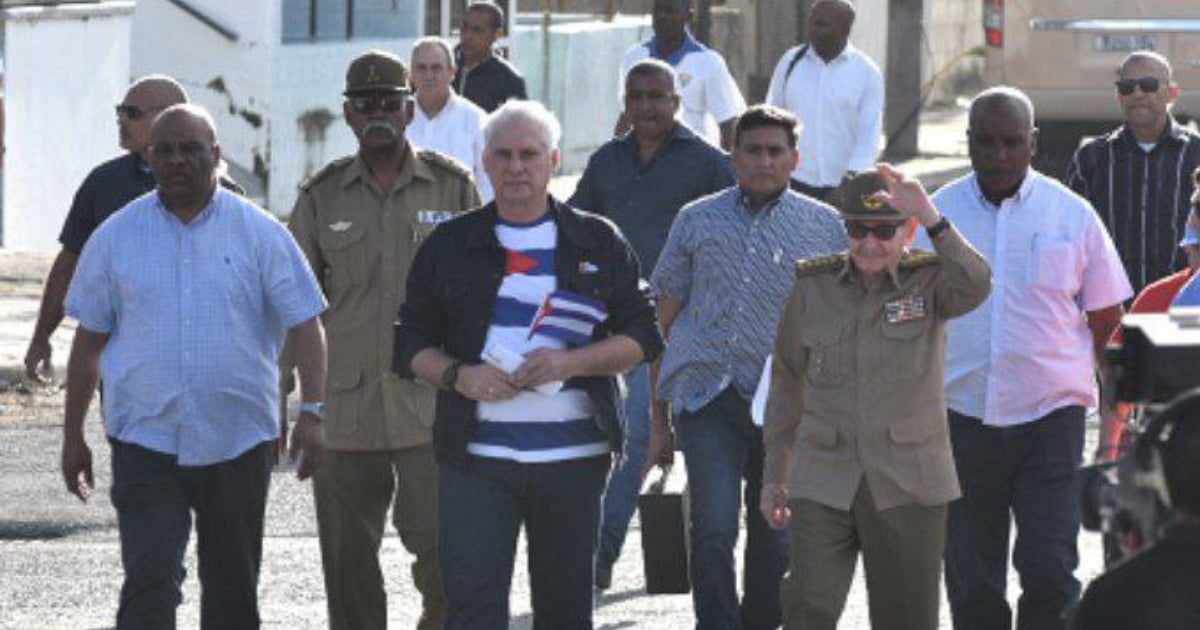
Related videos:
On December 20, Army General Raúl Castro led the so-called "March of the Combatant People," which took place in the area of the Anti-Imperialist Tribune and La Rampa (23rd Street) in Havana.
The event, called by the regime despite the serious crisis affecting the country, was also attended by President Miguel Díaz-Canel.
The demonstration began at 4:00 PM local time, at an event organized by the government to "condemn the economic blockade policy of the United States and Cuba's inclusion on the list of state sponsors of terrorism."
However, experts assert that this has been a strategy to pressure President Joe Biden into making changes regarding the island at the end of his term and to send a warning message to the public in light of the growing signs of popular discontent with the country's situation. The government deployed a fleet of buses and military trucks to transport soldiers to the march.
This event took place in a highly critical context for the Cuban population, marked by a severe economic crisis, evident in food shortages, ongoing blackouts, and increasing instability in basic services. The announcement triggered a wave of criticism on social media, where citizens voiced their frustration over the lack of real solutions to everyday problems.
The complaints highlight the disconnect between the urgent needs of the population and the regime's efforts to organize large-scale events for propaganda purposes. They explained that despite the economic difficulties, the government allocates significant resources to ensure the success of the march, while segments of the population continue to face increasingly challenging living conditions.
Frequently Asked Questions about the March of the Fighting People and the Situation in Cuba
What is the purpose of the "March of the Combatant People" called by the Cuban government?
The aim of the "March of the Combatant People" is to protest against the economic blockade imposed by the United States and Cuba's continued placement on the list of state sponsors of terrorism. However, it has been criticized for being perceived as a propaganda event that diverts attention from the serious economic crisis facing the country.
How has the Cuban population reacted to the march called by Díaz-Canel?
The Cuban population has reacted with discontent and rejection towards the march, viewing it as an unnecessary propaganda act amid a severe economic crisis. On social media, citizens have expressed their frustration using hashtags like #IWon'tMarch, which criticizes the government's disconnection from the real needs of the people.
Why has Raúl Castro's public visibility increased amid the crisis in Cuba?
Raúl Castro has increased his public presence in line with the worsening economic and social crisis in Cuba. It is speculated that this rise in his appearances aims to convey a message of continuity and stability at a critical moment for the Cuban regime, where the legitimacy of the government faces growing challenges.
What criticisms has the Cuban government received for organizing the "March of the Combatant People"?
The Cuban government has been criticized for its ineffective use of resources in organizing the march while the country is facing issues such as blackouts, food shortages, and an economic crisis. Analysts and citizens believe this is a strategy to distract the population from the structural problems affecting many Cubans.
What does Rosa María Payá's response to Díaz-Canel's march symbolize?
Rosa María Payá's response, encapsulated in the message "Leave," represents the frustration and discontent of the Cuban people towards Díaz-Canel's regime. It is a call for the president to resign as a means of addressing the political and economic crisis the country is facing.
Filed under: